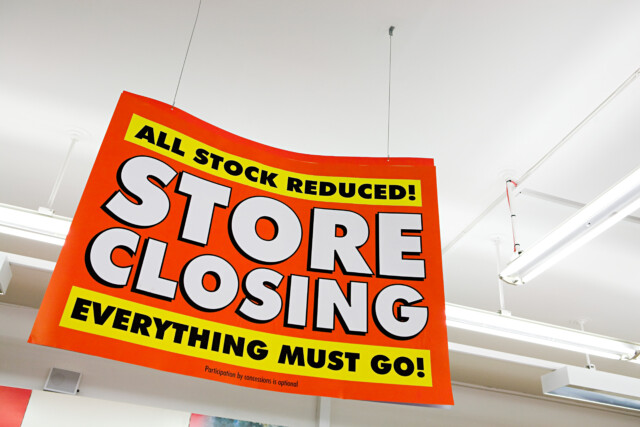A HIGH street shoe shop with stores is dozens of locations could be at risk of closure.
The parent company of Hotter Shoes has filed to appoint administrators and the business could be sold.
Hotter Shoes stores could be at risk of permanent closures as its parent filed to appoint administrators
The move could place all 26 Hotter Shoes stores across the UK at risk of closure.
It comes after Hotter Shoes owner Unbound said last week that it was on the brink of collapse unless it raised £2million in emergency funding.
The company continued talks to find a buyer of Hotter Shoes’ assets but recognised that these had been unsuccessful today.
The company said on Monday: “It is now clear to the board that it is no longer appropriate to progress these parallel discussions further”.
Instead, Unbound Group, the owner of Hotter Shoes, now wants to appoint Will Wright and Rick Harrison of Interpath Advisory as administrators.
The company said in a statement: “It is currently expected that, following their formal appointment, the administrators will implement a sale of the trade and assets of OpCo to a third-party purchaser as soon as reasonably practicable thereafter.
“There can be no certainty that any such sale will proceed or as to the terms or timing of any such sale.”
The move could put all 26 Hotter Shoes stores at risk of closure:
- Aberdeen Dobbies Garden Centre
- Atherstone Dobbies Garden Centre
- Bicester
- Bromley
- Cambridge
- Canterbury
- Cardiff
- Chesterfield Dobbies Garden Centre
- Chichester
- Dorchester
- Eastbourne
- Edinburgh Princes Street
- Exeter
- Glasgow
- Kingston Upon Thames
- Lasswade Dobbies Garden Centre
- Llandudno
- Norwich
- Hassocks Notcutts Garden Centre
- Rivendell Notcutts Garden Centre
- Wheatcroft Notcutts Garden Centre
- Rugby
- Solihull
- Southend-on-Sea
- Southport
- York
However, the move doesn’t automatically mean that Hotter Shoes’ stores could close if all trade and assets are purchased by a third party.
Shops usually continue to operate as normal throughout the administration process.
The brand and its bricks and mortar stores could be saved if administrators find a buyer.
But if a buyer was to only purchase the Hotter Shoes brand and trademark all stores could shut for good.
Numerous high street brands have collapsed into administration in the last 12 months.
From the Scottish clothing brand M&Co to wellies store Joules, a number of familiar brands went bust in 2022.
Major burger chain Byron Burger fell into administration in January and immediately shut all nine restaurants.
Paperchase then collapsed into administration at the end of the same month and all 106 stores have since closed for good.
But M&Co recently announced that it would return to the high street after Yours Clothing snapped up the brand name.
In 2020, Hotter Shoes launched a company voluntary arrangement (CVA) which resulted in the permanent closure of 46 stores.
What does going into administration mean?
When a company enters administration, all control is passed to an appointed administrator – who has to be a licensed insolvency practitioner.
Their goal is to leverage the company’s assets and business to repay creditors.
Once the administrator has taken over, a moratorium is placed around the company and stops all legal actions.
After the administrator takes over, there isn’t much that can be done to reverse the process.
How does administration work?
The administrator will write to your creditors and Companies House to say they’ve been appointed.
They will try to stop the company from being liquidated but if they can’t, the administrator will pay as much of a company’s debts as possible from the assets.
The administrator has eight weeks to write a statement explaining what they plan to do.
This must be sent to creditors, employees and Companies House and invites them to approve or amend the plans at a meeting.
What if I have gift cards?
When a company goes into administration, the people appointed to manage the process can decide whether to allow the use of gift cards or not.
It means you’ll need to keep an eye on the administration process to see what your rights are.
The administrators are allowed to stop accepting gift cards at any point.
If the administrators later decide that you can’t use your vouchers, you should register a claim with the administrators for the value of the vouchers.
This also applies if the company can’t be saved through administration and is later liquidated.
However, you may not get this money back if other creditors are owed money too. You may also only get a portion of the money back.
If the voucher or amount put on a gift card was for more than £100, then it may be possible to claim the money back if it was purchased with a credit card.
This is because the card company is jointly liable under Section 75 of the Consumer Credit Act 1974.
If the voucher was a gift, then you’d need to ask the person who bought it for you to claim the money back.
Did you miss our previous article…
https://hellofaread.com/money/aldi-has-made-a-major-change-to-nappies-and-its-giving-parents-a-poonami-heart-attack/








